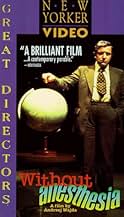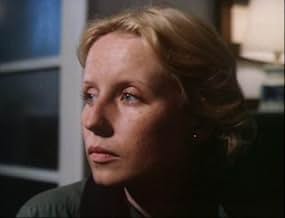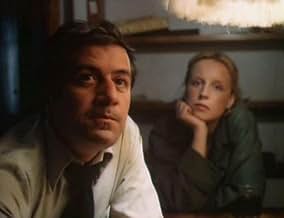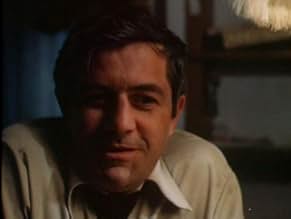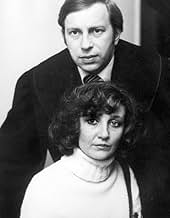First, I admit that I've admired almost everything that Andrzej Wajda has done, since I had the pleasure of seeing a National Gallery of Art retrospective of his films in Washington (that he attended). This movie was not in that series, but it should have been.
On one level it is a simple story of a man's life falling apart--both his professional life and his personal life.
Jerzy Michalowski is an urbane and confident foreign affairs reporter who has been all over the world and is not afraid to "modestly" describe his many travels and insights about world (and implicitly Polish) affairs on national TV.
He seems to have it all, yet upon his return, the "authorities" (including of course his pliant immediate superiors), begin to try to cut him down to size. His privileges begin to evaporate. He no longer receives foreign magazines ("Where is my Newsweek?"), his next trip is no longer necessary, his course at the university is mysteriously cancelled, his defender at the office loses his position. The vice starts to tighten.
Meanwhile his wife has also at the same time decided to leave him for a younger colleague who is immensely dismissive (but jealous) of Jerzy. This part of the plot suffers a bit since the colleague is such a priggish jerk, and it is hard to see what the wife sees in him. But perhaps this is Wajda's way of putting us, the viewer, in Jerzy's shoes--he can't believe this could happen either. Moreover Jerzy is fundamentally a sympathetic character--he dotes on his daughter, his dog, his students, and is good to his friends.
But the double whammy he is hit with sends him reeling and he flails in all directions trying to "fix" things. Along the way he lets his students party in his apartment, and he allows a doting but silent woman (the luminous Krstyna Janda--star of "Man of Iron" and "Man of Marble") to stay with him (platonically) in his apartment. And even though his wife is having some second thoughts, she goes through with the divorce action. This sets up the divorce proceeding in court. The courtroom scenes are classic communist jurisprudence--a patina of fairness over a lot of half truths and quarter truths.
In the end his world has completely fallen apart.
This is a 1979 film and Wajda, of course, had to be somewhat careful.
He uses a "soap opera" story to camouflage a trenchant critique of the then-existing Polish "system"--one that hammers down the rare nail that sticks out and that makes it possible for courtroom "witnesses" to transparently lie on the witness stand without challenge by bored and mechanical judges.
The acting is excellent and very natural--(except for the jealous colleague), and the overall effect is haunting.
But see anything with Wajda's name on it.

